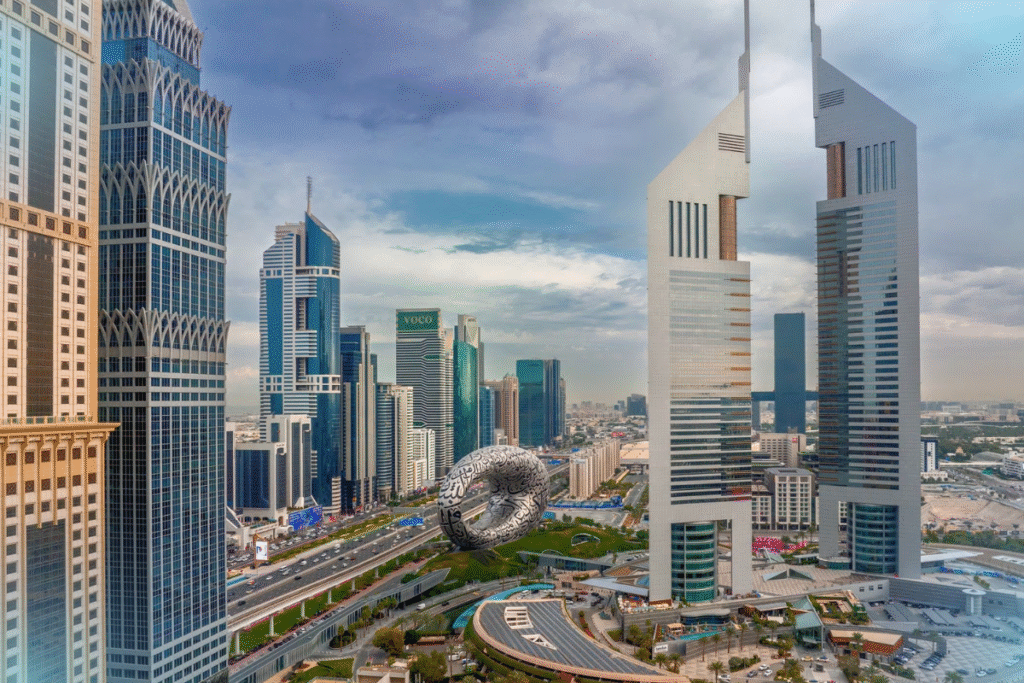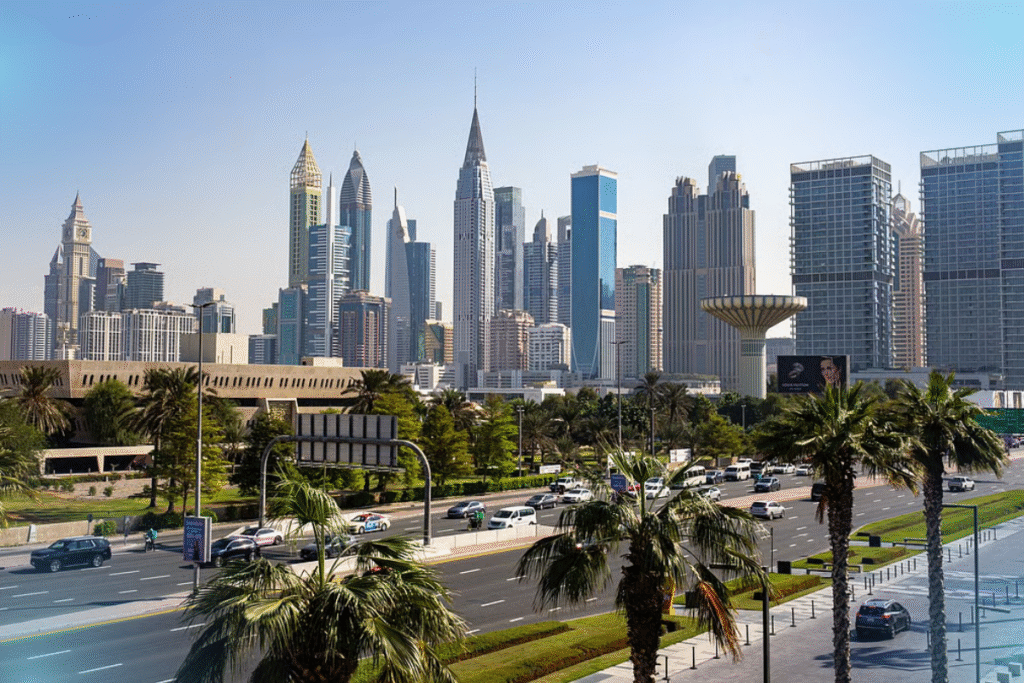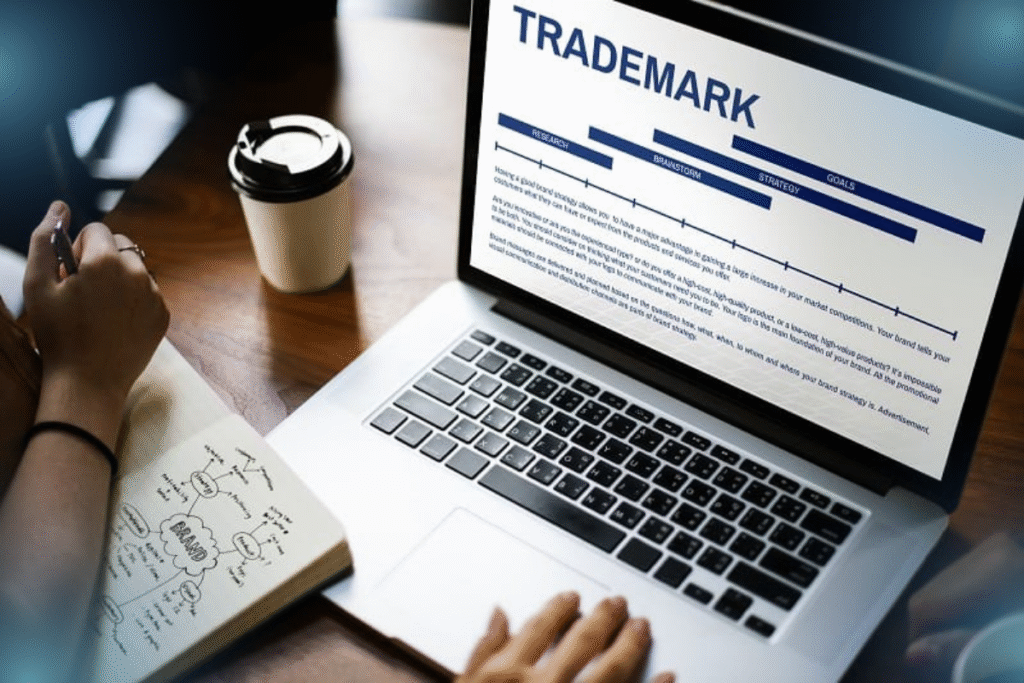GDRFA Fine Check in Dubai: How to Check and Pay Fines

Check and Pay Fines Living or working in Dubai comes with many legal responsibilities — one of them is staying on top of immigration fines. These fines, managed by the General Directorate of Residency and Foreigners Affairs (GDRFA), apply to residents, visitors, and companies that don’t meet visa or residency requirements. Knowing how to perform a GDRFA fine check Dubai can help you avoid penalties, delays, or even travel bans. Common Reasons for GDRFA Fines GDRFA fines are often issued for simple oversights. Some of the most common reasons include: Even small mistakes, like missing a renewal date, can lead to daily penalties that grow quickly. How to Perform a GDRFA Fine Check Online Dubai makes it easy to check your fine status online. You can do this through the official GDRFA website without needing an account. Follow these steps: If there are any fines, they’ll appear on the screen with details such as date, type, and amount. You can also download or print the results for your record. Tip: Make sure the data you enter is correct. Even a small error in your date of birth or ID number can show “no fines found,” even when fines exist. Checking Fines Through Mobile Apps You can also check and pay fines using the GDRFA Dubai app, available on both Android and iOS. Here’s how: Another option is the DubaiNow app, which connects multiple government services in one place. You can view GDRFA fines under your residency profile and pay using credit or debit cards securely through DubaiPay. How to Pay GDRFA Fines Once your GDRFA fine check Dubai shows an outstanding amount, paying it is simple. You can settle fines online, at Amer centers, or even at Dubai airports. To pay online: To pay in person:Visit an Amer center or GDRFA office with your Emirates ID and passport. Staff will verify your details and process the payment for a small service fee. At Dubai airports, visitors can pay overstay fines at immigration counters before departure. How to Dispute or Waive a Fine If you believe a fine was wrongly issued, you can apply for an exemption. Common valid reasons include: To file a dispute: Authorities usually respond within a few working days. Depending on the case, they may waive or reduce the fine. Why Regular Fine Checks Matter Ignoring fines can cause serious issues. Unpaid fines can block visa renewals, stop Emirates ID processing, or even trigger travel bans. Sponsors and employers may also face business restrictions if their dependents or staff have unresolved fines. Checking your GDRFA fine status regularly ensures peace of mind and smooth processing of all future residency or visa transactions. Need help managing visa or residency fines in Dubai?Contact AR Associates for expert assistance with GDRFA fine checks, payments, and exemption applications. Stay compliant — stay stress-free.
Dubai’s New Free Zone Policies Boost Business Setup

Dubai continues to strengthen its position as a global hub for entrepreneurs and investors. The emirate’s 2025 free zone policy updates have made Dubai free zone business setup faster, cheaper, and more flexible than ever. These changes reflect the city’s ongoing push to simplify regulations, attract global talent, and support business innovation. Key Updates to Free Zone Policies The new reforms focus on cutting red tape and improving accessibility. Here’s what business owners can expect: 1. Lower Licensing Costs:Several free zones now offer reduced license fees, in some cases by as much as 30%. Multi-year licenses come with additional discounts, making it easier for startups to manage expenses in the early stages. 2. Faster Registration:Digital systems have replaced much of the manual paperwork. Businesses can now complete registrations in as little as 3–5 days, depending on the free zone. 3. Flexible Business Activities:Entrepreneurs can now add multiple business activities under one license. This helps new businesses diversify without paying separate setup fees. 4. Full Foreign Ownership:Investors retain 100% ownership of their companies in all Dubai free zones. There’s no longer a requirement for local sponsorship, which gives full control to international investors. 5. Streamlined Amendments:Administrative fees for business changes—like adding partners or updating activities—are waived in many free zones. This makes business growth less costly and more efficient. Why These Changes Matter Dubai’s leadership wants to double the size of its economy by 2033 under the “D33 Agenda.” The new policies support this goal by promoting entrepreneurship, attracting foreign investment, and strengthening SME growth. According to the Dubai Chamber of Commerce, over 35,000 new businesses registered in the first half of 2025. Most of these were SMEs that benefited from the simplified setup process. The trend shows that the emirate’s business-friendly policies are working. Benefits for Startups and SMEs The new structure reduces the time and money needed to launch a company. With faster licensing, online applications, and fewer hidden fees, small businesses can allocate funds toward marketing, hiring, and product development. Additionally, Dubai free zones now offer co-working options, warehouse spaces, and startup incubators—helping new ventures get operational quickly. Sectors Expected to Thrive Technology, logistics, and e-commerce companies are expected to gain the most from the new regulations. Free zones such as Dubai Multi Commodities Centre (DMCC), Jebel Ali Free Zone (JAFZA), and Dubai Silicon Oasis (DSO) have introduced new packages designed to attract investors in these industries. Visa and Residency Incentives Setting up a business also comes with immigration advantages. Entrepreneurs and staff can apply for UAE residency visas, often valid for 2–10 years. This provides long-term stability for foreign professionals planning to live and work in Dubai. Legal and Compliance Considerations While the new rules make setup easier, compliance remains vital. Every business must have the proper documentation—such as the Memorandum of Association (MOA) and Articles of Association (AOA). Certain industries still require specific government approvals, so it’s important to consult a professional before registering. A Gateway to Global Markets Dubai’s geographic position makes it a strategic link between Asia, Europe, and Africa. The combination of tax incentives, modern infrastructure, and advanced logistics gives companies in free zones a strong platform for international trade. Conclusion The 2025 policy changes have transformed how entrepreneurs approach Dubai free zone business setup. With lower costs, simplified processes, and full ownership rights, Dubai remains one of the easiest places in the world to start and grow a business. Looking to register your company in a Dubai free zone? Connect with AR Associates for expert guidance, end-to-end documentation, and tailored business setup solutions.
How Expats Can Legally Own 100% of a Dubai Business

For years, foreign investors faced strict ownership rules when setting up a business in Dubai. Expats needed a local sponsor holding 51% of the company, leaving them with limited control. But things have changed. Today, Dubai’s updated laws allow full foreign ownership in most sectors, making it easier than ever for expats to run their ventures independently. The Law That Changed It All In 2021, the UAE revised the Commercial Companies Law. This major update removed the requirement for a local Emirati sponsor in many industries. Now, foreign entrepreneurs can own 100% of their mainland companies, depending on the type of business activity. The goal behind this reform was clear—boost foreign investment, attract global talent, and make the UAE one of the most open markets for entrepreneurs. Mainland vs. Free Zone Ownership Before choosing where to set up, expats should understand the difference between mainland and free zone ownership. 1. Mainland Companies:Expats can now have complete ownership of their mainland company, except in strategic sectors like oil, gas, and defense. Setting up in the mainland allows businesses to trade anywhere in the UAE and internationally. However, approval depends on your chosen activity being on the approved list of fully foreign-owned categories. 2. Free Zone Companies:Free zones have always offered 100% foreign ownership. They’re ideal for businesses focused on international trade, consultancy, or digital services. The only drawback is limited access to UAE’s local market without a distributor or local branch. How to Get 100% Ownership in Dubai Expats looking to start their venture should follow these key steps: 1. Choose the Right StructureSelect a legal structure that fits your business model—Limited Liability Company (LLC), Sole Establishment, or Civil Company. Each has different requirements and benefits. 2. Pick a Business ActivityThe Department of Economy and Tourism (DET) has an updated list of over 1,000 activities eligible for full ownership. Activities in sectors like trading, services, manufacturing, and e-commerce are now open to expats. 3. Get Necessary ApprovalsYou’ll need approval from relevant authorities based on your chosen activity. For example, a healthcare or education business might require extra permits from specialized departments. 4. Draft and Register DocumentsPrepare your Memorandum of Association (MOA), trade name reservation, and application forms. These must comply with UAE regulations. Legal consultants or business setup firms can help ensure accuracy. 5. Obtain Your LicenseOnce your documents are approved, you’ll receive your trade license. This grants full legal ownership and the right to operate in Dubai. Key Benefits of 100% Ownership Owning your company outright comes with several advantages: This freedom encourages long-term investment and gives entrepreneurs confidence to scale their businesses across the UAE. Important Considerations While the law has opened doors, not every sector qualifies for 100% ownership. Strategic and national security-related fields still require local participation. It’s also vital to keep your business compliant with UAE tax laws, licensing renewals, and corporate regulations. Partnering with a trusted consultant ensures your setup process goes smoothly and that your company structure aligns with the law. Final Thoughts Dubai has become one of the most attractive places in the world for entrepreneurs. With legal reforms supporting full ownership, expats now have more control, fewer restrictions, and greater opportunities to grow. Setting up a business in Dubai is no longer complex—it’s a clear, well-structured process for those who plan carefully and follow the right steps. Looking to start your company in Dubai with 100% ownership? Get expert guidance from AR Associates — specialists in company formation, licensing, and legal documentation across the UAE.
Power of Attorney (POA) in the UAE

A Power of Attorney (POA) is one of the most useful legal tools in the UAE. It allows a trusted person, known as an agent or attorney, to act on behalf of another individual or company, known as the principal. From handling real estate transactions to managing company operations, it plays a key role in both personal and business matters. What is a Power of Attorney in UAE? A Power of Attorney in UAE is a notarized document that grants legal authority to act for someone else. This could include signing contracts, managing assets, or representing the principal before government authorities. The scope of authority depends on the type of POA issued—General or Special. 1. General Power of Attorney A General POA gives wide authority to the agent. It allows them to handle almost all financial, legal, and personal matters on behalf of the principal. Common uses include: However, because of its broad authority, a General POA should only be given to someone completely trustworthy. It can be misused if not drafted carefully. 2. Special Power of Attorney A Special POA is limited to specific actions or transactions. It is safer and commonly used for one-time or focused tasks. For example: Here are a few common examples of Special POAs used in the UAE: Real Estate POA: Grants power to buy, sell, lease, or manage properties on the principal’s behalf.Vehicle POA: Authorizes vehicle sale, registration renewal, or export.Inheritance POA: Allows an heir or law firm to represent family members in probate and succession matters.Marriage POA: Lets a proxy represent a bride’s guardian in marriage registration.Child Travel Consent: Enables one parent or a guardian to accompany or authorize a child’s travel. 3. Power of Attorney for Companies Businesses often issue POAs to streamline operations. A Company Management POA gives authority to a general manager to run daily operations and make executive decisions.Companies may also issue Special POAs for specific purposes such as: These POAs simplify legal processes and help maintain business continuity. How to Get a Power of Attorney in UAE The UAE has made POA creation and notarization easier through its e-notary services. Residents and non-residents can now get documents notarized online without visiting a notary public office. Here’s the process: The whole process is quick, secure, and recognized by UAE authorities. Why Choosing the Right POA Matters Choosing the correct POA ensures the right balance between authority and protection. A well-drafted POA clearly defines what actions are allowed, reducing the chance of misuse. It also ensures the document is accepted by banks, courts, and government offices. If unsure which type fits your needs, consulting a legal expert familiar with UAE law is a smart choice. They can guide on structure, wording, and notarization requirements. Whether managing assets from abroad or delegating authority for business, the Power of Attorney in UAE provides peace of mind and legal security. With the right guidance, it becomes a reliable way to protect interests and simplify decision-making. Need help drafting or notarizing your Power of Attorney in the UAE?Get expert legal assistance from AR Associates – your trusted partner for POA drafting, attestation, and legal documentation across the Emirates.
Top 5 Business Structures for Entrepreneurs in Dubai

Choosing the right business structure is one of the first and most important steps when starting a company in Dubai. Each option offers different benefits, requirements, and levels of control. For those exploring entrepreneurship in Dubai, knowing these structures helps build a strong and compliant foundation. Let’s look at the top five business structures that make sense for entrepreneurs setting up in Dubai. 1. Sole Proprietorship A sole proprietorship is the simplest setup for individuals who want full control of their business. It’s owned and managed by one person. All profits go directly to the owner, but so does the risk. The owner is personally responsible for any debts or losses. UAE nationals and GCC citizens can open a sole proprietorship for almost any activity. Foreign investors can start one too, but only for professional services like consulting or design. A Local Service Agent (LSA) must be appointed to handle government paperwork. This structure is ideal for freelancers, small consultants, and independent professionals looking for flexibility. 2. Limited Liability Company (LLC) An LLC is the most popular structure among foreign entrepreneurs. It combines flexibility with protection. The liability of each shareholder is limited to their investment in the company. An LLC can be owned by one or more people, and in most cases, foreign investors can now own 100% of the shares. This setup allows trade within the UAE and internationally. It’s suitable for those who plan to hire staff, import goods, or manage large operations. However, the company cannot engage in insurance or banking activities. It must also appoint an approved auditor. 3. Free Zone Company Free zones were designed to attract foreign investors. A Free Zone Company offers 100% ownership, zero import or export taxes, and no income tax. It’s quick to set up and comes with access to modern offices, warehouses, and logistics support. However, the company can only operate within its free zone or outside the UAE. To trade within the mainland, it must work through a local distributor or open a branch office. Free zones are perfect for online sellers, tech startups, and export-driven businesses. 4. Branch of a Foreign Company If you already have a company abroad, setting up a branch in Dubai is an efficient way to expand. The branch can perform commercial activities similar to its parent company. However, it must operate under the same name and obtain a local license. A Local Service Agent is required for administrative purposes, but they do not hold ownership rights. This option allows global companies to test the market without creating a separate legal entity. Branches are often used by established firms in sectors like engineering, consultancy, and trading. 5. Civil Company A civil company is a partnership between two or more professionals offering services that rely on skill or expertise. Examples include doctors, lawyers, architects, or consultants. This structure allows full foreign ownership for professional services but carries unlimited liability. If there’s no UAE national partner, a Local Service Agent is still needed. It’s a suitable choice for people who want to start a service-based business and maintain full control over operations. Choosing What Fits You Best When deciding on a structure, think about your goals, business model, and target market. The right structure shapes how your business grows, operates, and scales in Dubai. With the city’s modern infrastructure and clear legal system, entrepreneurship in Dubai offers unmatched potential for both locals and expats. Ready to start your business journey in Dubai?Let AR Associates help you choose the right structure, handle documentation, and set up your company with ease. Get in touch with AR Associates today to start your setup process.
Dubai: Your Launchpad for E-commerce Success in the Booming Middle East

Dubai is no longer just a city of skyscrapers and shopping malls. It’s now a top destination for entrepreneurs ready to tap into online business. With strong infrastructure, simple setup options, and a growing online consumer base, Dubai makes starting an e-commerce brand easier and faster than ever. Why Dubai Stands Out Dubai’s position between East and West gives businesses access to both global and regional markets. It connects traders to the Middle East, Africa, and South Asia within hours. The city also offers stable regulations, modern logistics, and a population that shops online daily. The government supports the digital economy by making company formation and trade licensing simple. Entrepreneurs can choose between free zone, mainland, or offshore setups depending on their goals. Free zones offer full ownership and tax advantages. Mainland companies can trade directly with the UAE market. Offshore options work best for global trade without local operations. Setting Up Your E-commerce Business Starting an online store in Dubai involves clear steps. First, choose the right legal structure. Then, apply for an e-commerce license. This license lets you sell products or services online in compliance with UAE law. Once the legal part is complete, secure a domain name and hosting. Build a clean, mobile-friendly website. Make sure it loads fast and includes secure payment options like credit cards or digital wallets. A well-built site builds trust and makes buyers feel safe. Cybersecurity matters. Use SSL certificates and protect customer data with verified systems. When people know their information is safe, they shop with confidence. Marketing and Growth Having a website isn’t enough. To grow your brand, use digital marketing tools wisely. Search engine optimization (SEO) helps your products appear in search results. Pay-per-click (PPC) ads bring fast traffic to your store. Social media platforms like Instagram and TikTok connect your brand with active shoppers. Content marketing can also help. Share helpful blogs, short videos, and product guides. Educating your audience increases trust and keeps your business top of mind. Many successful brands in the Dubai e-commerce business space rely on influencer collaborations to boost visibility. Delivering the Right Experience Good service builds loyalty. Offer easy payment methods, clear shipping options, and responsive customer support. Many online shoppers in Dubai expect fast delivery, so partnering with reliable logistics companies is key. Encourage repeat buyers through discounts, points, or referral programs. Keep communication simple and quick—automated chats and emails help with this. The Power of Location Dubai’s ports, airports, and courier systems make regional trade smooth. The city’s digital infrastructure supports both local and international e-commerce. Whether selling tech gadgets, fashion, or food, businesses benefit from easy access to nearby markets like Saudi Arabia, Kuwait, and Oman. Add to that the city’s zero-income-tax advantage and growing pool of skilled workers, and you have an environment made for e-commerce success. Entrepreneurs from around the world now see Dubai as a global base for online ventures. Final Thoughts Dubai is the perfect launchpad for anyone serious about online retail. The mix of smart infrastructure, easy setup, and regional access gives businesses a strong edge. Whether you’re starting small or expanding globally, the Dubai e-commerce business ecosystem is designed to help you grow faster and smarter. In short, Dubai isn’t just part of the e-commerce boom—it’s leading it. Ready to start your e-commerce journey in Dubai?Let AR Associates guide you through business setup, licensing, and all the essentials for success.Contact AR Associates today to turn your e-commerce vision into reality.
How to Register Trademark in UAE

In the UAE, a trademark protects more than a logo or a name, it protects a business’s identity. For companies building their presence in this growing market, registering a trademark is one of the smartest legal steps. It prevents others from using your brand, builds credibility, and helps customers trust your business. What Is a Trademark? A trademark is any name, logo, phrase, or symbol that identifies a company’s products or services. It can also include signatures, images, or specific designs that make your business distinct. The main purpose of a trademark is to help customers recognize your brand and prevent others from copying it. Why Trademark Registration Matters In a market as competitive as the UAE, many businesses operate in similar industries. Without trademark protection, anyone could use a name or logo that resembles yours. This can cause confusion and even lead to financial loss.When you register trademark in UAE, you gain exclusive rights to use that mark. It allows you to take legal action against unauthorized use and protect your business reputation. Steps to Register Trademark in UAE The UAE Ministry of Economy oversees the trademark registration process. Here’s how it works: What Cannot Be Registered Some trademarks are not accepted in the UAE. These include: Renewal and Maintenance A registered trademark in the UAE lasts for 10 years. It can be renewed for another 10 years by submitting a renewal application and paying the required fee. Businesses should renew before expiration to avoid penalties. Benefits of Registration Final Thoughts To register trademark in UAE is not just a formality—it’s an investment in your brand’s future. It ensures your business identity stays protected, respected, and valuable in a competitive market. Need expert help with trademark registration? Contact AR Associates for reliable guidance through every step of the process.
Emirates Announces Major Change for Passengers on All Flights

Emirates has introduced an important safety rule affecting all travelers. Starting October 1, 2025, passengers are no longer allowed to use power banks onboard any Emirates flight. The airline confirmed this new regulation after a comprehensive safety review. The change applies across the entire Emirates fleet and is part of ongoing efforts to enhance passenger safety. According to the airline, power banks can still be carried in hand luggage if they meet specific requirements but cannot be used or charged during the flight. What the New Rule Means for Travelers Passengers may bring one power bank rated under 100 watt-hours (Wh). However, Emirates has made it clear that using power banks to charge devices while onboard is strictly prohibited. Passengers also cannot recharge their power banks using the aircraft’s power outlets. All power banks must display their capacity rating and should be stored either under the seat or in the seat pocket, not in the overhead bins. Power banks remain banned from checked baggage, a rule that aligns with international air safety standards. Why Emirates Implemented the Change This Emirates passengers update comes as airlines worldwide increase caution over lithium battery safety. Power banks use lithium-ion or lithium-polymer batteries, which can pose a fire risk if damaged, short-circuited, or overcharged. In rare but serious cases, overheating or combustion can occur—a process known as “thermal runaway.” Emirates stated that this ban helps ensure cabin crew can access power banks quickly if any incident occurs. The decision was made after reports of several battery-related incidents across the aviation industry. Safety and Comfort Still a Priority Even with this change, Emirates ensures convenience for all travelers. Every seat on Emirates aircraft is already equipped with built-in USB or power outlets for device charging. Still, passengers are encouraged to fully charge their devices before boarding—especially for long-haul flights. By prohibiting power bank use, Emirates aims to prevent potential onboard risks without affecting passenger comfort. The airline reiterated that safety remains its top priority while maintaining its reputation for reliability and care. What Passengers Should Do Before Flying Before traveling, passengers should: With this clear and structured rule, Emirates continues to uphold its strong focus on passenger safety and operational excellence.
UAE President Meets OpenAI CEO to Discuss AI Collaboration

The United Arab Emirates continues to strengthen its global position in artificial intelligence. In a recent meeting, President Sheikh Mohammed bin Zayed Al Nahyan met with OpenAI CEO Sam Altman to discuss future cooperation in the field of AI. The discussion focused on how both sides can collaborate to accelerate research, development, and practical applications of artificial intelligence across industries. The UAE has made major investments to lead in AI innovation. From national strategies to billion-dollar infrastructure projects, the country aims to become a global center for technology. This meeting marks another step toward that goal, reflecting the government’s dedication to building a strong AI-driven economy. A Shared Vision for Artificial Intelligence During the meeting in Abu Dhabi, both leaders emphasized the importance of responsible AI growth. The focus was on creating technology that benefits education, healthcare, and public services while maintaining ethical and safety standards. OpenAI’s expertise in developing advanced models like ChatGPT, combined with the UAE’s large-scale vision, sets the stage for meaningful collaboration. President Sheikh Mohammed highlighted that artificial intelligence is not only about technology but also about building human capacity. The UAE continues to invest in training, education, and partnerships that help local talent master AI tools and research. By aligning with global innovators like OpenAI, the nation aims to fast-track skill development and encourage a culture of innovation. The UAE’s Drive Toward AI Leadership The UAE’s commitment to AI development in UAE has been evident for several years. The government launched the world’s first Ministry of Artificial Intelligence and adopted a national AI strategy focused on integrating smart systems in key sectors. From the launch of the Arabic-language AI model “Jais” to the construction of one of the world’s largest AI data centers, the country continues to take bold steps forward. In May, the UAE also partnered with the United States to establish a massive AI campus outside the U.S. This partnership aims to support research, education, and commercial innovation in artificial intelligence. The facility will offer infrastructure for startups, research labs, and advanced training centers. Strengthening Global Partnerships The collaboration between OpenAI and the UAE highlights the growing need for cross-border cooperation in technology. Artificial intelligence is a global effort that depends on knowledge sharing, data infrastructure, and responsible governance. By inviting international experts and organizations to work together, the UAE seeks to create a balanced and secure AI ecosystem. Sam Altman expressed appreciation for the UAE’s efforts to promote safe and sustainable AI use. He noted that partnerships like these are crucial to ensuring that artificial intelligence benefits society as a whole. The UAE’s open approach, combined with its strong investment power, positions it as a valuable partner for global AI leaders. The Road Ahead This meeting represents more than a political exchange — it signals the UAE’s readiness to shape the future of artificial intelligence. The country’s policies and partnerships show a clear strategy: encourage research, attract global talent, and ensure that AI supports national progress. The ongoing AI development in UAE reflects the nation’s broader ambition to diversify its economy and reduce dependency on oil. With continued collaboration and responsible implementation, the UAE is well on its way to becoming a hub for AI innovation, not just in the Middle East but worldwide. AR Associates supports entrepreneurs and businesses in navigating the UAE’s growing technology ecosystem. For expert guidance on company formation or tech-driven business setup, reach out to AR Associates today.
E-commerce in the UAE: Setting Up an Online Business in Dubai

E-commerce has reshaped how businesses operate in the UAE. With over 99% internet penetration and one of the highest smartphone usage rates in the world, Dubai has become a hub for online trade. For entrepreneurs, this is the ideal time to enter the digital market and start an online venture. Why Start an E-commerce Business in Dubai Dubai offers a perfect mix of opportunity, infrastructure, and policy support. The city’s advanced logistics, global connectivity, and tax benefits make it one of the easiest places to start an online store. Government initiatives such as Dubai CommerCity and support from free zones have encouraged thousands of entrepreneurs to set up digital businesses. Add to that the convenience of online payments, high consumer spending, and strong logistics, and you have a solid foundation for success. Step 1: Choose Where to Set Up You can register your e-commerce business either on the mainland or in a free zone. Popular free zones for e-commerce include Dubai CommerCity, Sharjah Media City (SHAMS), and Dubai Multi Commodities Centre (DMCC). Step 2: Get Your E-commerce License A valid license is mandatory for any online business. To operate an e-commerce business in Dubai, you must apply through the Department of Economic Development (DED) for a mainland license or through your chosen free zone authority. The license defines what kind of online activities you can perform—selling physical goods, offering digital services, or providing marketplace platforms. Step 3: Build a Website That Sells Your website is your storefront. Keep it fast, simple, and mobile-friendly. Most shoppers in the UAE browse and buy through their phones. Include clear product images, accurate descriptions, and easy checkout options. Partner with a trusted developer to make your website secure and optimized for search engines. A slow or confusing site can drive customers away. Step 4: Set Up Safe Payment Options Customers expect secure and flexible payment choices. In Dubai, credit cards, Apple Pay, and cash on delivery are widely used. Integrate reliable payment gateways approved by UAE banks to avoid transaction issues and build customer trust. Step 5: Handle Logistics and Delivery Fast delivery is key to customer satisfaction. Work with dependable courier companies that offer same-day or next-day delivery within the UAE. Use tracking tools to give customers real-time updates. Many small e-commerce startups partner with logistics firms instead of building in-house delivery systems. Step 6: Follow the Rules The UAE has clear e-commerce regulations to protect both sellers and buyers. Always show prices in AED, mention return policies, and keep customer data secure. Non-compliance can lead to heavy fines or license cancellation. You’ll also need to renew your trade license annually and maintain proper accounting records. Step 7: Promote Your Store Visibility drives sales. Use digital marketing tools like SEO, Google Ads, and social media campaigns. Influencer collaborations are highly effective in Dubai, especially in fashion, beauty, and tech categories. Consistent content and strong branding help build long-term loyalty. The Benefits of Going Digital Starting an e-commerce business in Dubai gives you access to a strong economy, easy global shipping links, and a diverse consumer base. With smart planning and the right setup, your online store can compete with established brands within months. Final Thoughts Dubai offers one of the most supportive environments for online entrepreneurs. Clear rules, advanced technology, and growing demand make it an ideal base for digital trade. All you need is the right license, a functional website, and a strong marketing plan to get started. Want expert help starting your online business in Dubai? Contact AR Associates today for complete guidance on e-commerce licensing, registration, and setup in the UAE.

